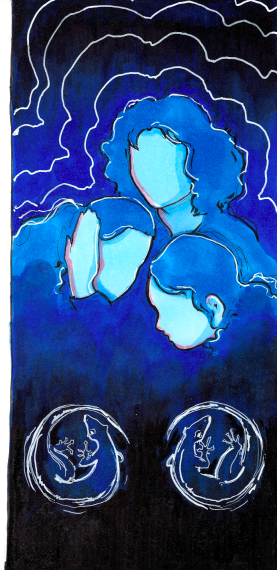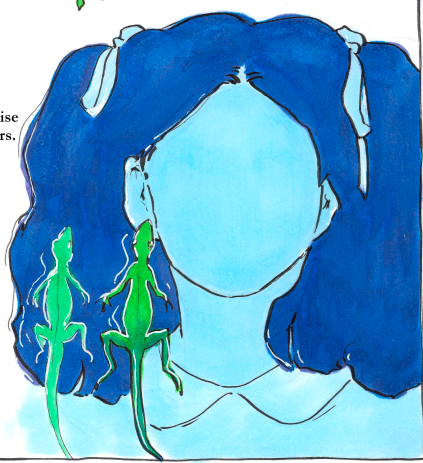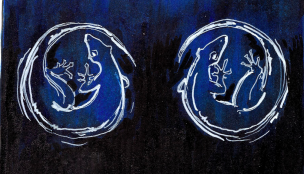News
Reviews

What a lovely imagination. All of the poems in The Imaginary Age bristle with this same inventiveness of language, a vision that seduces the reader with its charm, its warmth.
from “A Review of The Imaginary Age by Leanna Petronella” by Charles Rammelkamp in Compulsive Reader
By the end, The Imaginary Age proves to be a difficult but rewarding read. Even though Petronella touches on sensitive and serious topics, I never felt devastated or scared of where this book might leave me. The speaker might have been scared at times, but I felt safe all along, as though I knew Petronella would never cast her readers into the darkness of grief, would never quite close the door.
from “A Palette of Loss, Longing, & Surrealism” by Josefine Klockars in New Letters

Interviews
Author Interview in NonBinary Review
“Sacrifice the Bread: An Interview with Leanna Petronella” in EcoTheoReview
“An Interview with Leanna Petronella” in Pleiades
”Dear Poetry Editor” in Queen Mobs
Panels
C.D. Wright Women Writers Conference / Across Species Lines: Women Writing Animals
On Saturday, November 8, 2019, Leanna joins Kate McIntyre, Anne Barngrover, Trudy Lewis, and Wendy Oleson on this panel to discuss the importance of animals in women’s writing.
From the surrealist provocation of Leonora Carrington’s hyena to Marianne Moore’s prickly array of creatures to the minutely observed weasels of Annie Dillard or the strange symbiosis of insect-like aliens and humans in Octavia Butler, women writers have long been probing the intricacies of human-animal relations. Five women writers of fiction, poetry, and creative nonfiction discuss the pressing need for more animals on the page in these times of ecological crisis, the role of animals in their own work, and why the inclusion of animal and nonhuman characters in creative works can be viewed as a feminist act.
Gemini Ink Writers Conference / Haunted Environments & Hidden Stories
On Sunday, July 21, 2019, Leanna joins Matty Layne Glasgow, Esteban Rodriguez, Renee Christopher, & Ayo Falomo on this panel to discuss the role of identity in excavating memory & negotiating place.
For writers of marginalized identities, environment can serve as both a site of and an escape from trauma. In what ways can we as writers honor the places that made us & liberate ourselves from the oppression & trauma that held us there? In this panel, we explore how queer worldmaking, magical realism, & environmental writing can excavate stories of place, paying close attention to the construction & suppression of identity in these practices.

Art by Jen Julian